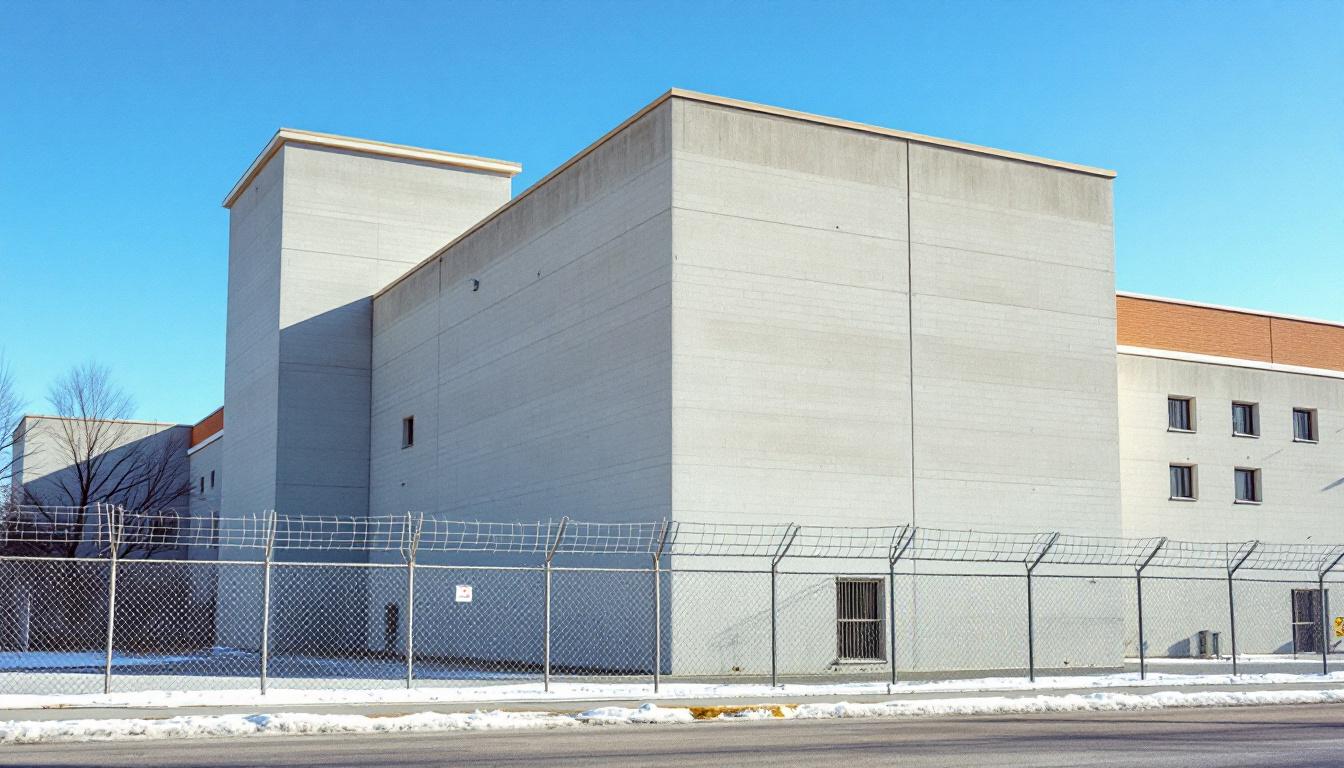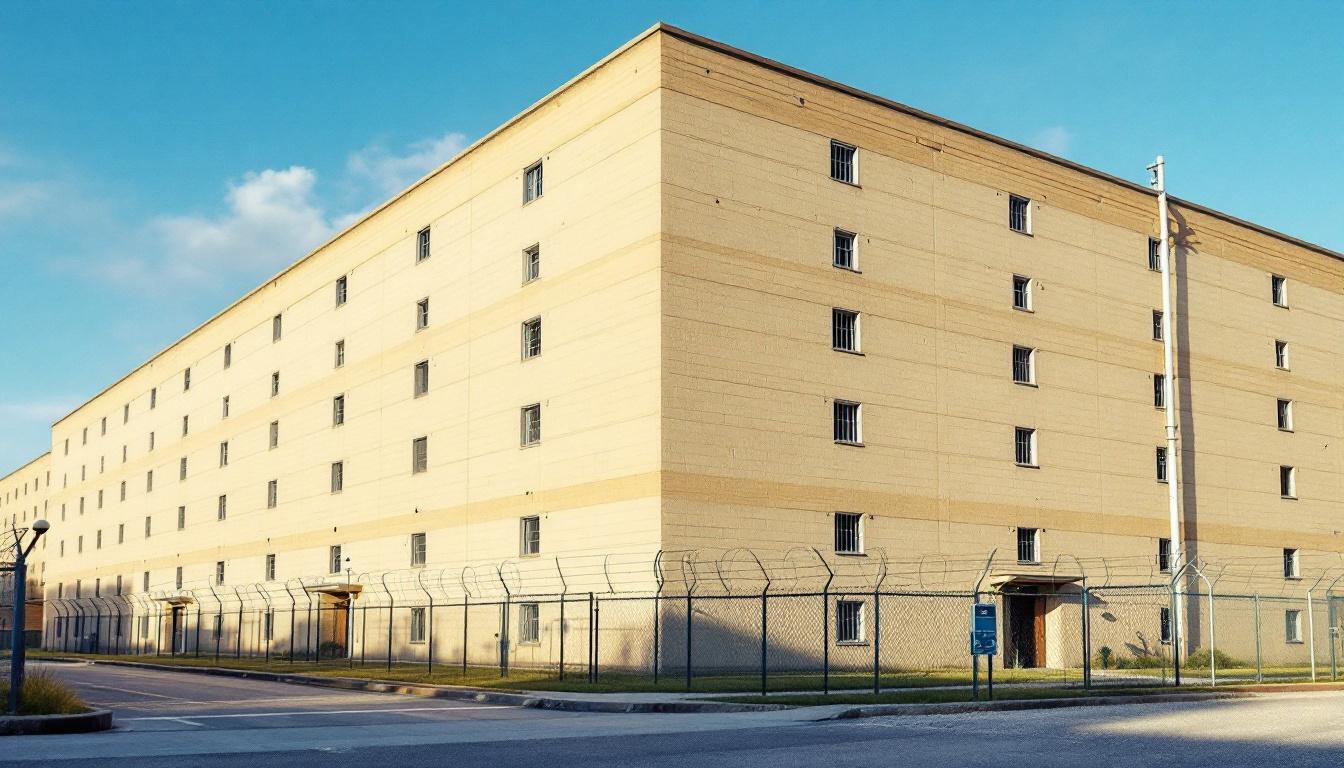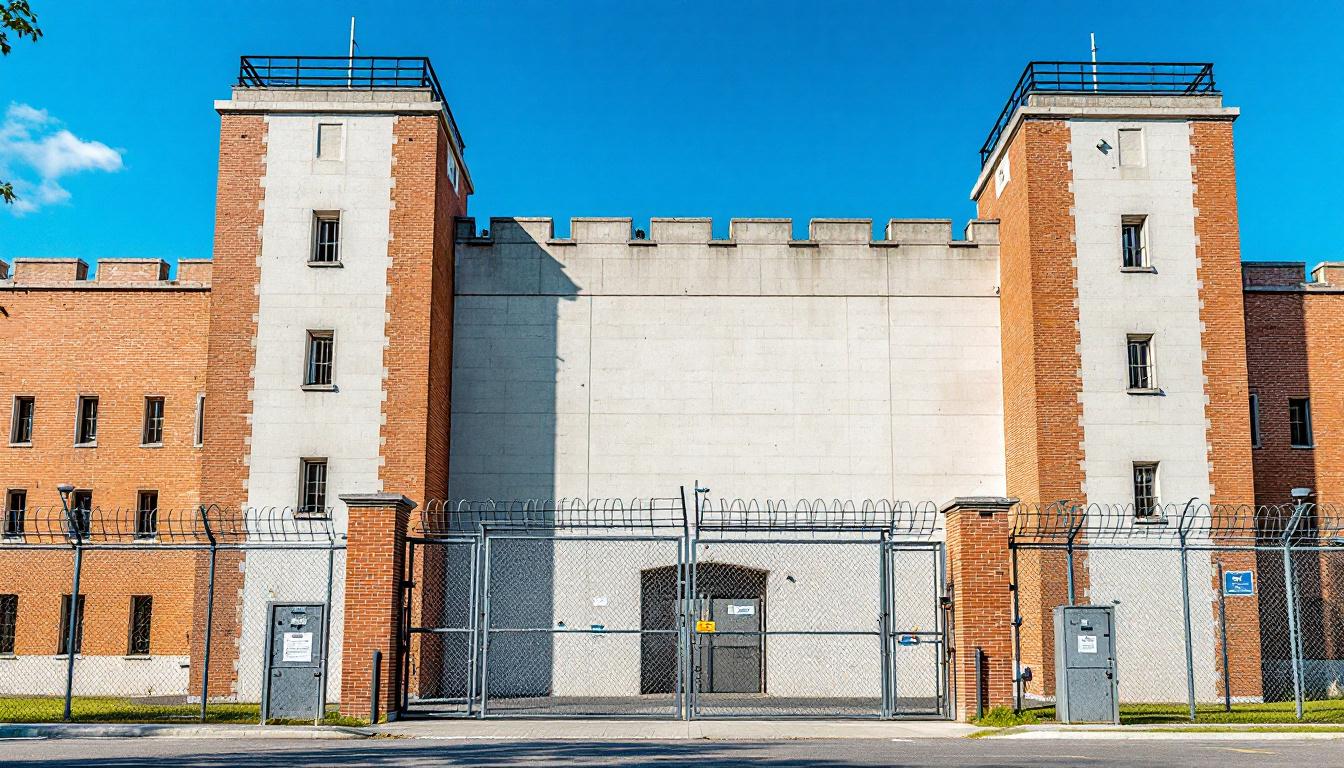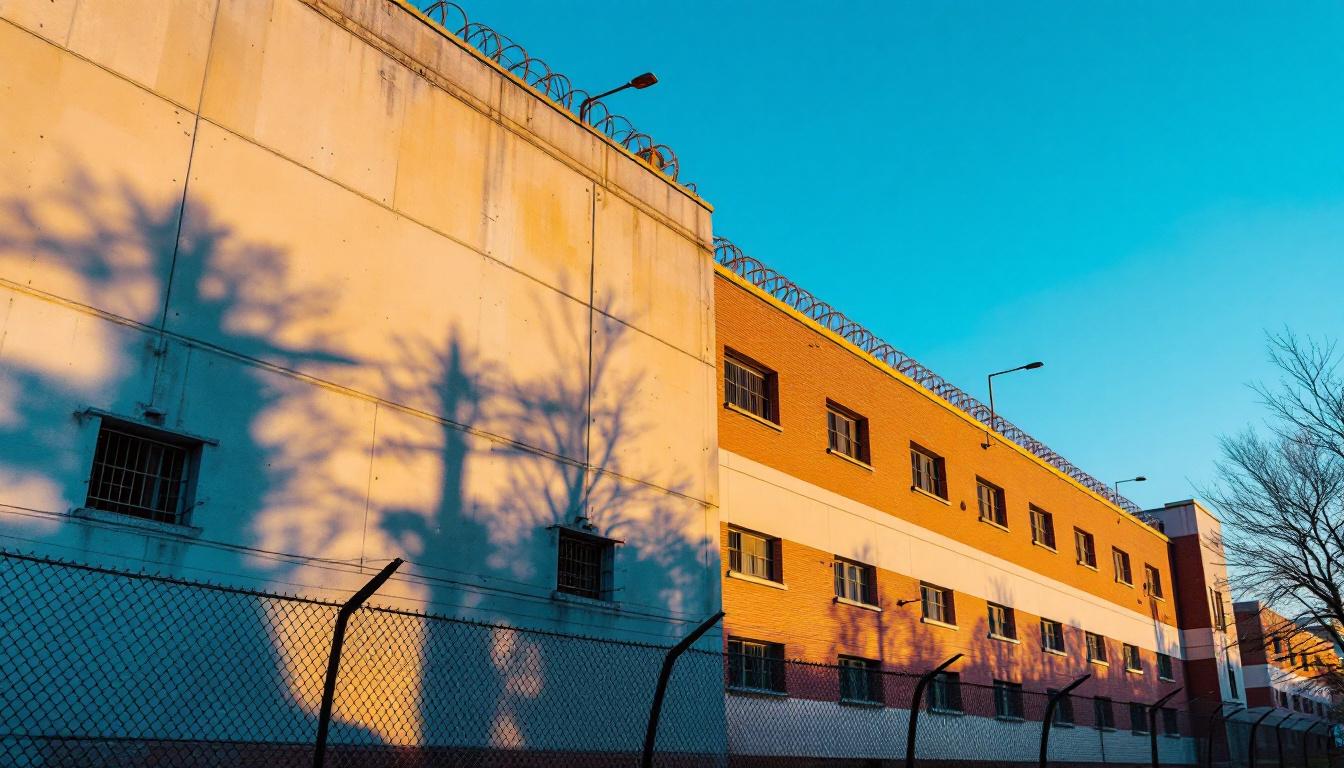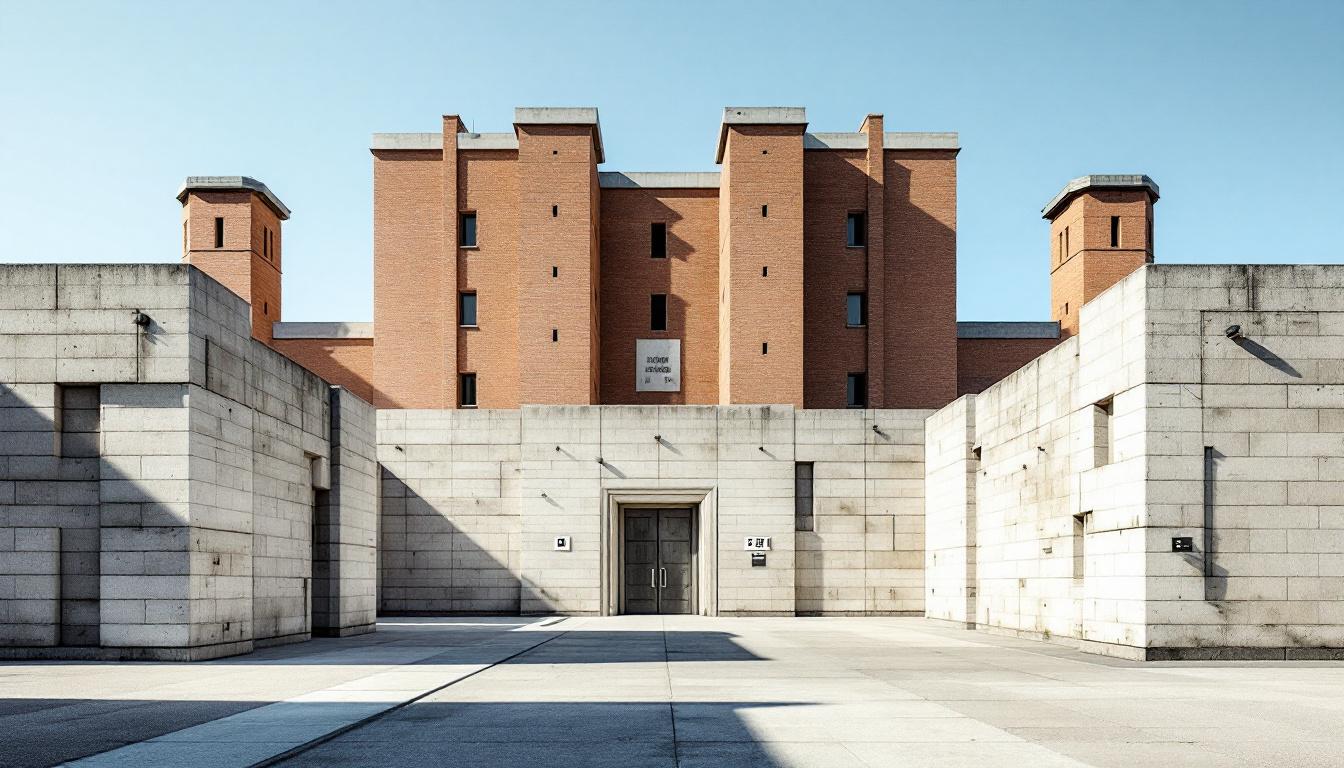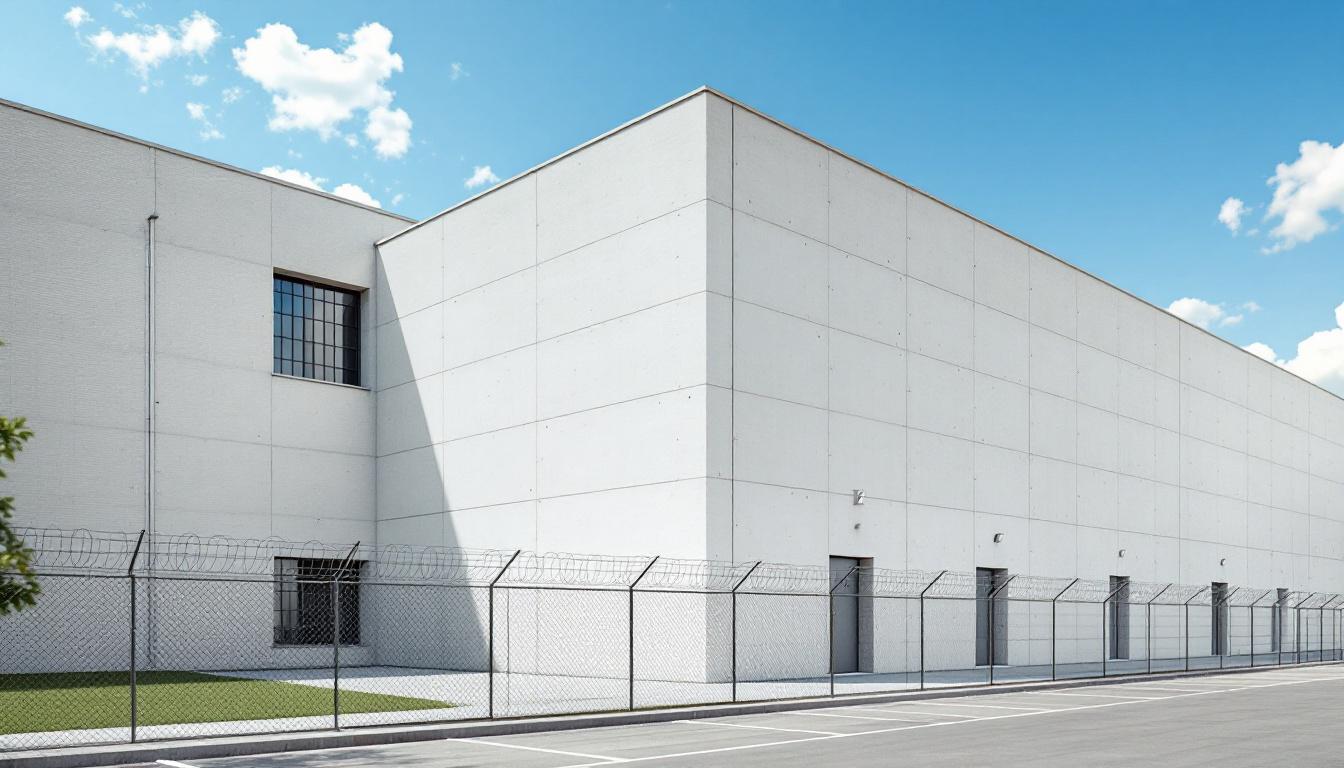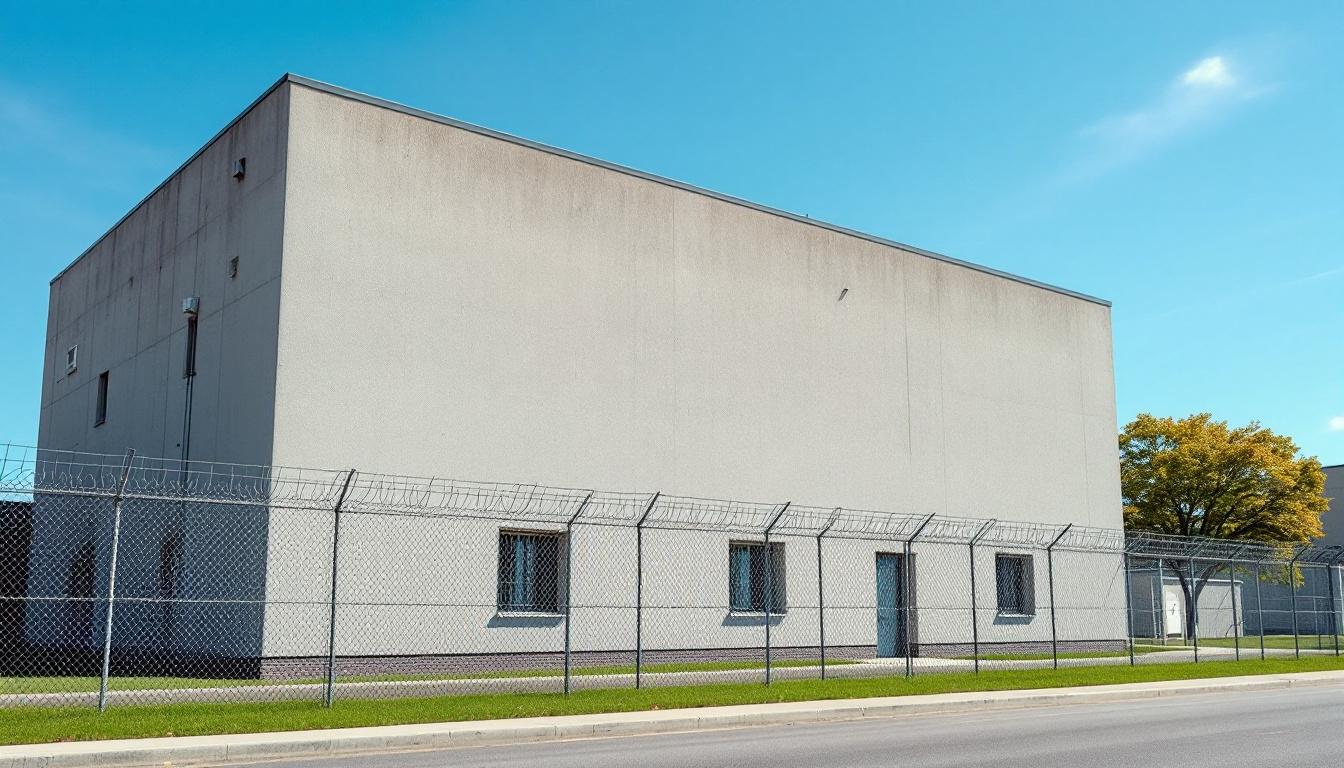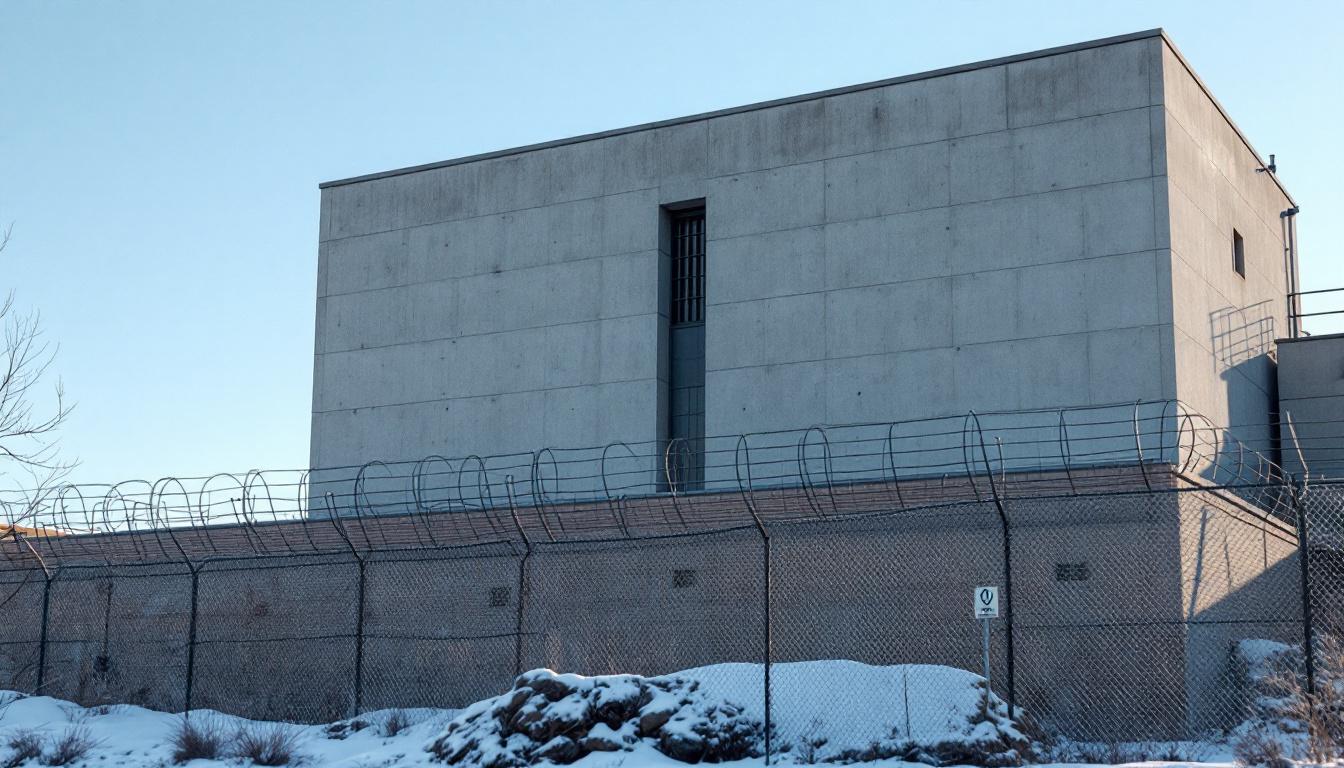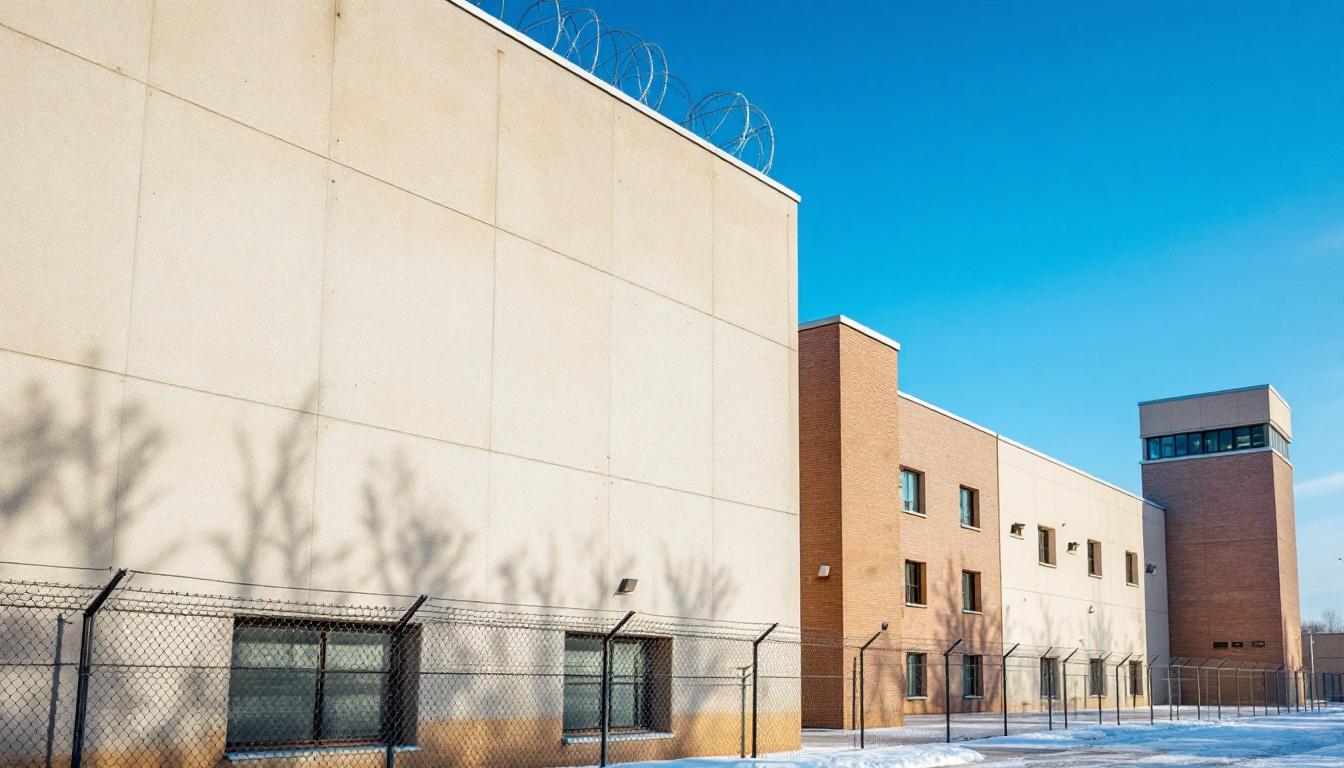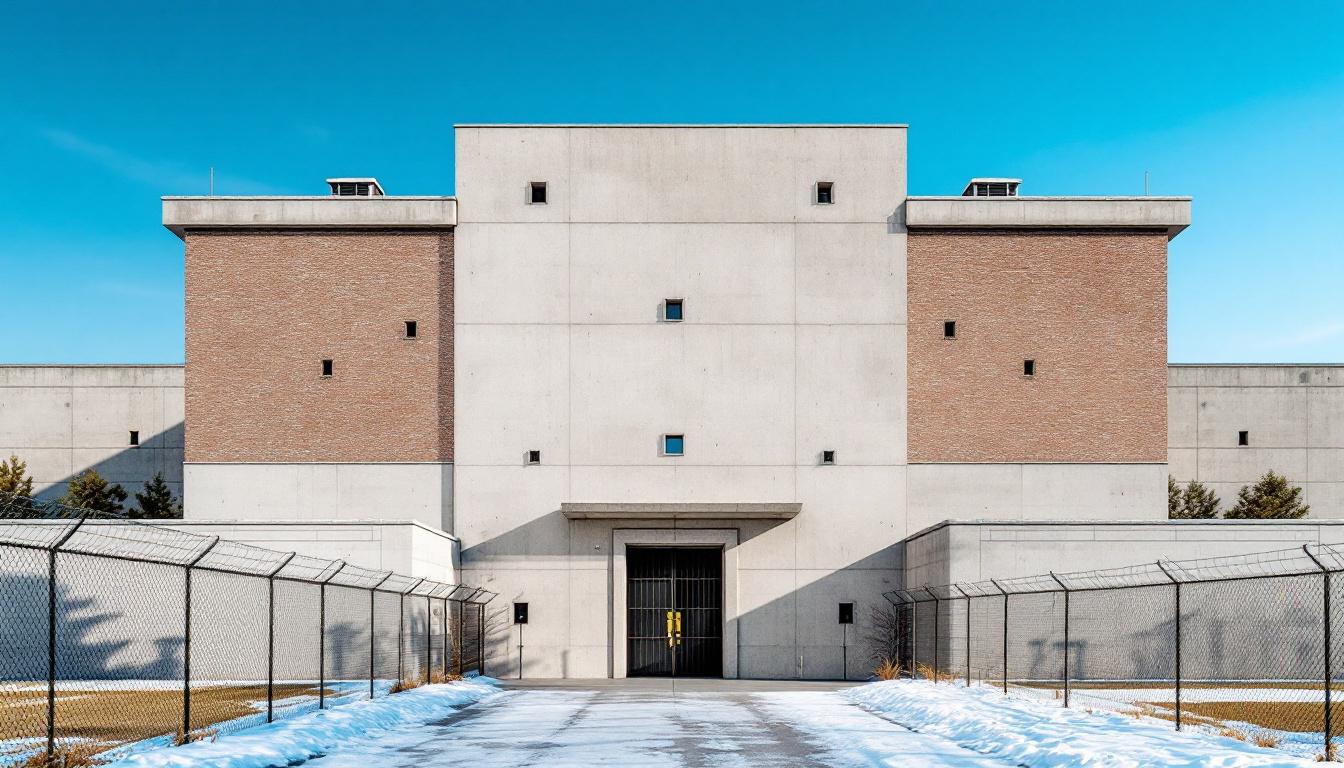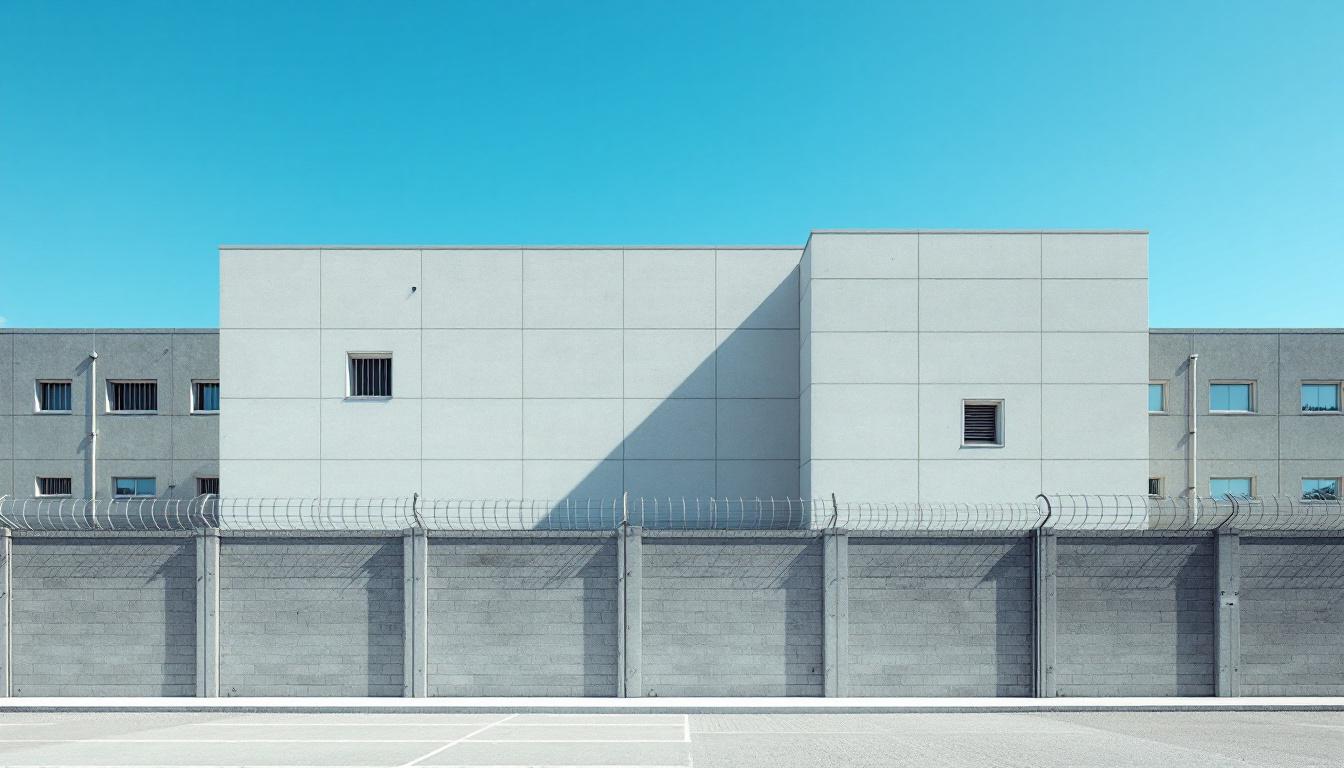
Quick Navigation
How to contact an inmate at Pickens County Detention Center
This comprehensive guide will walk you through how to connect with an inmate at Pickens County Detention Center. Follow the steps below to find an inmate and send letters and photos:
- Search for the inmate using our search tool below
- Create your account or log in to Penmate
- Write your message (up to 6,000 characters)
- Send instantly - inmates receive printed copies daily
Find an Inmate
Search for an inmate to start communicating today
Tip: You can search by first name, last name, or inmate ID number
To contact a person at Pickens County Detention Center start by searching for the person on the official facility website. Perform a search by following these steps:
- Step 1: Enter their first name and last name into the search form and click "Search"
- Step 2: Locate their inmate record
- Step 3: Write down their Inmate ID and any housing information provided
Important! Be sure to enter the person's full name. Nicknames should not be used.
How to Send Messages to Inmates

You can use your phone or computer to send emails, letters, and photos to an inmate. Messages are sent electronically to inmate tablets or kiosks at the facility. If you would like to send a message, start by searching for an inmate at Pickens County Detention Center.
Sending Photos and Postcards

A great way to send love and support to a loved one at Pickens County Detention Center is to send photos and postcards. It only takes a few minutes to send photos from your phone and it makes a huge difference. You can also mail postcards with words of support and inspiration, or design your own postcard for special moments like birthdays and holidays.
Important! Be sure not to send any explicit photos or they may not be approved by the facility. You can also use a photo printing app like Penmate to make sure your photos are printed at the correct size (4x6 or 3x5) and are mailed according to the rules and regulations of Pickens County Detention Center.
Frequently asked questions about Pickens County Detention Center
-
How long does it take to deliver a message?
If you're sending an email message your letter is usually delivered within 24-48 hours. For messages sent via mail you should expect delivery within 3-7 days. All messages will need be approved by Pickens County Detention Center.
-
How much does it cost to send a message to Pickens County Detention Center?
You can send a message free using your phone or mail a message via USPS for the price of a $0.60 stamp and envelope. You can also purchase credits or e-stamps from services starting at $1.99.
-
What services can I use to contact an inmate at Pickens County Detention Center?
Penmate
You can use Penmate to send letters and photos to an inmate from your phone. It's an easy way to stay in touch during your loved one's incarceration. Use the inmate locator to find an inmate's location and contact information, then you can send messages within a few minutes.
Securus messaging
Securus may be another option for communicating with an inmate at Pickens County Detention Center. You can create a friends and family account and purchase credits to send messages. All messages will be reviewed and must be approved by the facility.
JPay
Some county jails and state prisons may support sending messages with JPay. You must register an account with the system, find your loved one, and purchase stamps to send messages. For some locations you can also attach photos.
Smart Jail Mail
You may also check if Smart Jail Mail is available at Pickens County Detention Center. Smart Jail Mail is operated by Smart Communications and has contracted with some state and county jails. After purchasing credits, your messages and photos are sent to the facility, printed out, and then handed out to your loved one.
-
What is the mailing address of Pickens County Detention Center?
Mailing address:
Pickens County Detention Center
701 S Catherine St
Pickens, SC 29671
Phone: (864) 898-2940Business hours:
- Monday: Open 24 hours
- Tuesday: Open 24 hours
- Wednesday: Open 24 hours
- Thursday: Open 24 hours
- Friday: Open 24 hours
- Saturday: Open 24 hours
- Sunday: Open 24 hours
-
What are the visiting hours at Pickens County Detention Center?
Visiting hours at Pickens County Detention Center vary by housing unit and security level. Generally, visits are scheduled on weekends and holidays, with some facilities offering weekday visits. Contact the facility directly at (864) 898-2940 or check their website for the current visiting schedule. Visits typically last 30-60 minutes and must be scheduled in advance.
-
What items are prohibited when sending mail to Pickens County Detention Center?
Prohibited items typically include: cash, personal checks, stamps, stickers, glitter, glue, tape, staples, paperclips, polaroid photos, musical or blank greeting cards, hardcover books, magazines with staples, and any items containing metal or electronics. Only send letters on plain white paper with blue or black ink. Photos must be printed on regular photo paper (no Polaroids). Always check with Pickens County Detention Center for their specific mail policies.
-
How do I send money to an inmate at Pickens County Detention Center?
You can send money to an inmate at Pickens County Detention Center through several methods: 1) Online using JPay, Access Corrections, or the facility's approved vendor, 2) Money orders mailed directly to the facility with the inmate's name and ID number, 3) Kiosks located in the facility lobby, or 4) Over the phone using a credit or debit card. Fees vary by method, typically ranging from $2.95 to $11.95 per transaction.
-
Can I schedule a video visit with an inmate at Pickens County Detention Center?
Many facilities now offer video visitation as an alternative to in-person visits. At Pickens County Detention Center, video visits may be available through services like Penmate, Securus Video Connect, GTL, or ICSolutions. Video visits typically cost $10-20 for 20-30 minutes and must be scheduled in advance. You'll need a computer or smartphone with a camera and reliable internet connection. Contact the facility for their specific video visitation policies and approved vendors.
-
What identification do I need to visit an inmate at Pickens County Detention Center?
All visitors must present valid government-issued photo identification such as a driver's license, state ID, passport, or military ID. Minors must be accompanied by a parent or legal guardian who can provide the minor's birth certificate. Some facilities require visitors to be on the inmate's approved visitation list, which may require a background check. Contact Pickens County Detention Center for specific ID requirements and visitor approval procedures.
-
How can I find out an inmate's release date?
To find an inmate's release date at Pickens County Detention Center, you can: 1) Use the online inmate search tool if available, 2) Call the facility's records department, 3) Contact the inmate's case manager or counselor, or 4) Have the inmate provide this information during a call or visit. For privacy reasons, some facilities only release this information to immediate family members.
Facility Overview
Contact Information
Pickens County Detention Center701 S Catherine St
Pickens, SC 29671
Phone: (864) 898-2940
Official Website
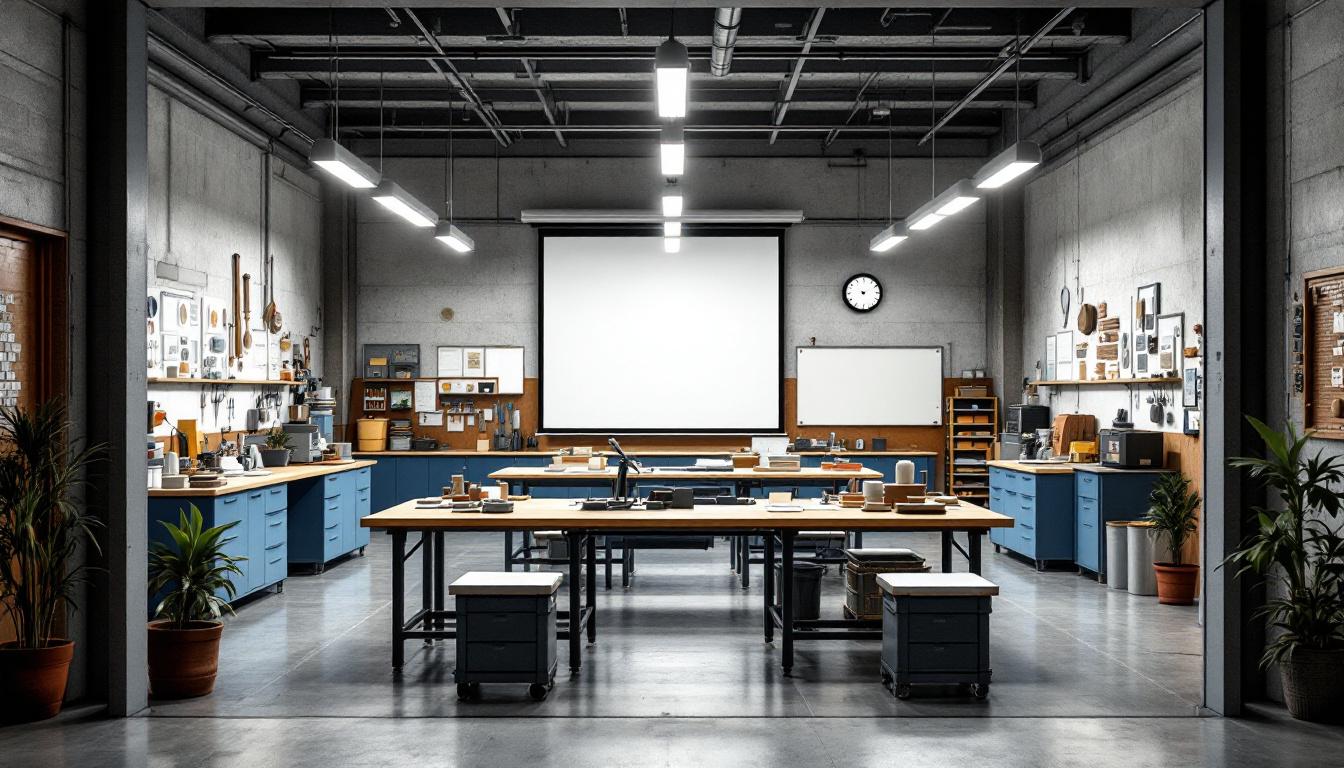
About Pickens County Detention Center
Supporting public safety through secure housing and structured programming represents the fundamental mission of the Kirkland correctional facility, which operates within South Carolina's comprehensive correctional network in Columbia. The facility's integration into the state capital's correctional infrastructure reflects the broader regional approach to managing incarcerated populations while maintaining community safety standards throughout the Midlands area.
Within South Carolina's correctional system, Kirkland typically functions as part of the state's multi-layered approach to addressing criminal justice outcomes through systematic processes designed to balance security requirements with rehabilitation opportunities. The facility generally provides those incarcerated services that may include educational programming, vocational training opportunities, and structured daily routines aimed at supporting positive behavioral changes. These process-focused interventions often work in conjunction with mental health support and substance abuse programming, reflecting the state's recognition that effective corrections involves addressing underlying factors that contribute to criminal behavior.
The Columbia location positions this SC correctional facility within a region that benefits from established healthcare networks, educational partnerships, and community reentry resources typical of urban correctional environments. Through systematic implementation of security protocols and structured programming, the facility generally contributes to the state's broader correctional objectives while serving the specific needs of its population. The outcomes-focused approach typically emphasizes preparing individuals for eventual community reintegration through skill development and behavioral programming that addresses the complex factors influencing successful transitions from incarceration.
Programs & Services
Within the structured environment of correctional facilities, transformative opportunities emerge that enable those incarcerated to cultivate essential skills and rebuild their futures. The comprehensive approach to rehabilitation at Kirkland typically emphasizes personal development through carefully designed offerings that address educational deficiencies, professional skill-building, and holistic wellness. This multifaceted framework often creates pathways for individuals to develop competencies that extend far beyond their period of incarceration, fostering meaningful change through structured learning environments.
Educational advancement forms the cornerstone of developmental opportunities, with education services that may furnish academic instruction across various levels of learning. Those incarcerated often have access to English as Second Language (ESL) programming, which serves to enhance communication skills and broaden employment prospects upon release. Moreover, vocational training in specialized fields such as welding typically provides hands-on experience with industry-standard equipment and techniques, enabling participants to develop marketable skills that align with current workforce demands and economic opportunities.
The facility's support structure often includes comprehensive vocational programs that complement technical training with career readiness preparation. Faith-based initiatives may offer spiritual guidance and community connection, while music programs typically provide creative outlets that contribute to emotional well-being and personal expression. Additionally, wellness programs often encompass physical fitness, mental health awareness, and stress management techniques, creating a holistic approach to personal development that addresses the diverse needs of those working toward successful reintegration into their communities.
Daily Life & Visitation
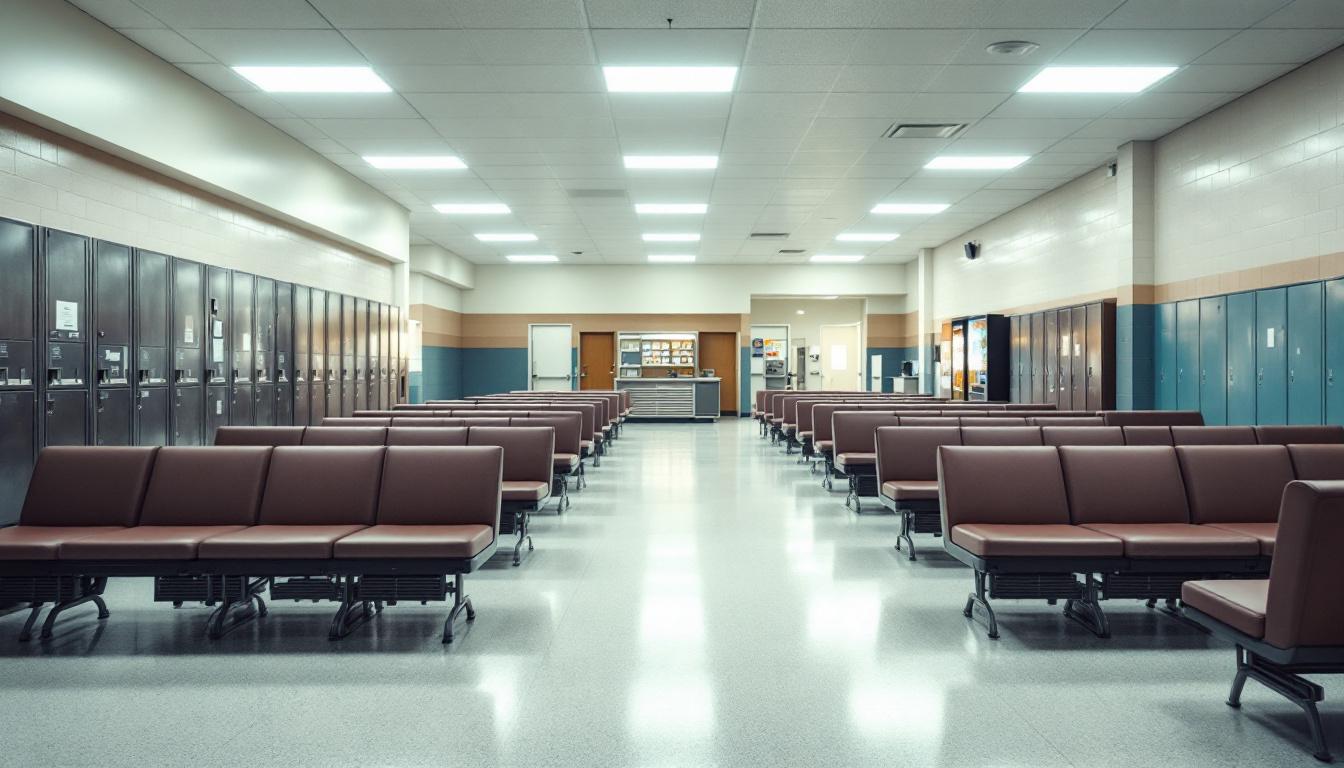
Building meaningful connections with fellow residents and maintaining vital family bonds form the cornerstone of daily existence for those incarcerated at this South Carolina facility. The structured environment now provides regular opportunities for social interaction through shared meals, recreational activities, and collaborative work assignments that help individuals navigate their time while preserving important relationships with loved ones on the outside.
Living arrangements typically involve dormitory-style housing units where those incarcerated share common areas that naturally foster community interaction throughout the day. The dining hall serves as a central gathering place where residents come together for meals, creating opportunities for conversation and mutual support among individuals from diverse backgrounds. These shared spaces generally accommodate the social needs of the population while maintaining appropriate supervision and security protocols that ensure everyone's safety and well-being.
Moreover, the facility regularly furnishes structured programming that includes educational classes, vocational training, and recreational activities designed to build skills while encouraging positive peer relationships. Visitation policies typically allow family members and approved friends to maintain regular contact through scheduled visits, phone calls, and correspondence, helping those incarcerated preserve crucial connections to their support networks. Whereas the daily routine provides necessary structure through work assignments in areas such as food service, maintenance, and facility operations, these responsibilities often create collaborative environments where residents work together toward common goals while developing valuable job skills for their eventual reintegration into the community.
Ready to Connect?
Start communicating with your loved one today
Search for an Inmate
